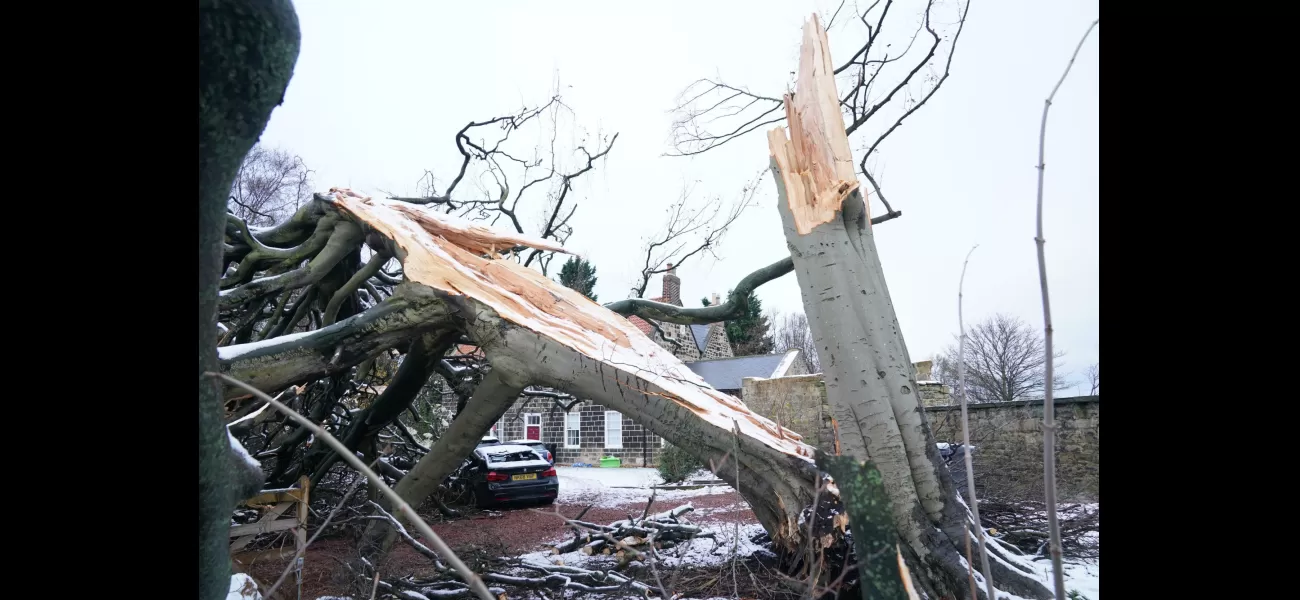Millions could get compensation for power outages due to storms under new Ofgem rules. How much can you get?
Inquiry led to changes to help prevent future power outages after Storm Arwen caused thousands to lose power for days.
September 1st 2023.

The destruction caused by Storm Arwen in November 2021 was immense, leading to thousands of households and businesses losing power. In response to this, Ofgem has announced new rules to increase the compensation cap for those affected by these extreme weather events.
Akshay Kaul, Ofgem’s director general of infrastructure, said it was ‘unacceptable’ that thousands were left in freezing conditions without power and without any idea of when it would be restored. He added that ‘lessons had been learnt’ from the inquiry and that these new regulations would help ensure networks are more resilient in the future.
The new compensation cap has increased from £700 to £2,000, with an initial payment of £80 to customers if their supply is not restored after 24 hours in a category one storm or 48 hours in a category two storm. Ofgem has also cut the length of the time consumers have to wait for additional compensation from 12 hours to six hours after the initial payment period.
So, how is a storm categorised? A Category 1 storm is one which causes between eight and 12 times the daily average number of faults within a 24-hour period and a category 2 storm is one which causes more than 12 times the daily average number of faults.
In the wake of Storm Arwen, nearly one million homes and businesses were left without power, with around 40,000 customers being cut off for three days and around 4,000 with no power for over a week in some parts of northern England and north-east Scotland.
The new rules will help to ensure that those affected by severe weather events are properly compensated and that networks are better prepared for the future. It is hoped that these regulations will help to minimise the disruption caused by extreme weather events in the future.
Akshay Kaul, Ofgem’s director general of infrastructure, said it was ‘unacceptable’ that thousands were left in freezing conditions without power and without any idea of when it would be restored. He added that ‘lessons had been learnt’ from the inquiry and that these new regulations would help ensure networks are more resilient in the future.
The new compensation cap has increased from £700 to £2,000, with an initial payment of £80 to customers if their supply is not restored after 24 hours in a category one storm or 48 hours in a category two storm. Ofgem has also cut the length of the time consumers have to wait for additional compensation from 12 hours to six hours after the initial payment period.
So, how is a storm categorised? A Category 1 storm is one which causes between eight and 12 times the daily average number of faults within a 24-hour period and a category 2 storm is one which causes more than 12 times the daily average number of faults.
In the wake of Storm Arwen, nearly one million homes and businesses were left without power, with around 40,000 customers being cut off for three days and around 4,000 with no power for over a week in some parts of northern England and north-east Scotland.
The new rules will help to ensure that those affected by severe weather events are properly compensated and that networks are better prepared for the future. It is hoped that these regulations will help to minimise the disruption caused by extreme weather events in the future.
[This article has been trending online recently and has been generated with AI. Your feed is customized.]
[Generative AI is experimental.]
0
0
Submit Comment





